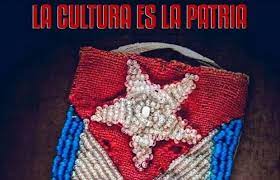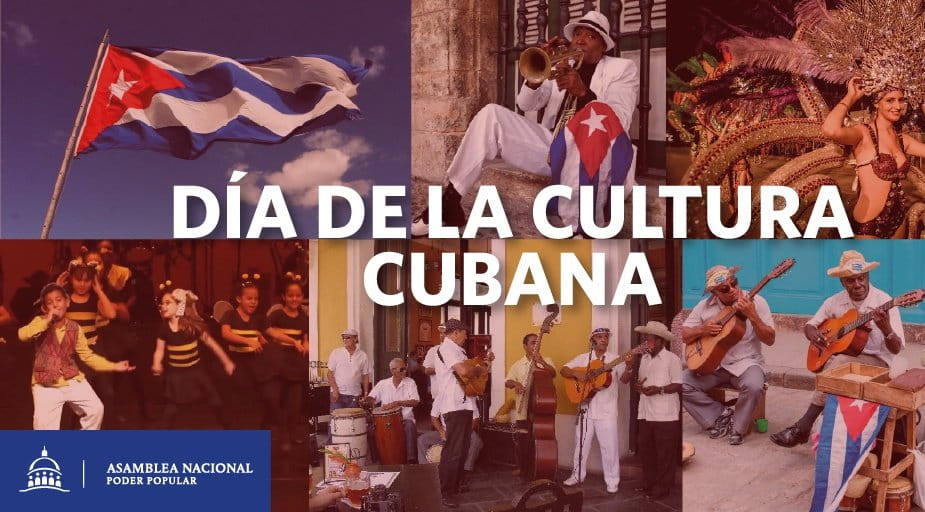
Cuba and Culture Day
Culture is something essential in the life of the Cuban people. Culture is not limited to the field of artistic and literary creation but encompasses everything that has to do with our identity, with our way of being and the way in which we defend our values and in turn respect those of other peoples.
This October 20, we Cubans all celebrate the Day of Culture, in homage precisely to the day that the Cuban independence fighters led by Carlos Manuel de Céspedes managed to occupy the city of Bayamo in 1868 and sang there for the first time the song created by Pedro Figueredo (Perucho) that with the passing of time was accepted as the Cuban National Anthem.
Not only on nearby days and on this specific date in different places of Cuba, and of course in the capital, take place dissimilar activities in which the strength of our cultural heritage is made evident.
And that is also highlighted through professional and scientific events, some of them of international level, conferences, exhibitions, fairs, book presentations, artists and groups, plays, just to mention a few examples.
Havana usually hosts important cultural events that attract a large number of people, including men and women from different parts of the world, such as the International Book Fair, Cubadisco, the Theater, Plastic Arts, Dance and Film Festivals, among others.
Even in the midst of the difficult situations caused by the Covid pandemic, in the field of culture, as in other spheres, it was possible to find alternatives, through digital means, to continue making the cultural life of our country, and of Havana in particular, felt.
The capital of all Cubans has Houses of Culture in the different municipalities that make up the province, as well as dozens of museums, theaters, galleries, libraries and other institutions in charge of promoting the development of culture.
The Union of Writers and Artists of Cuba (UNEAC), the Hermanos Saíz Association, the National Ballet of Cuba (BNC) and other important dance groups have their headquarters in Havana. Thousands of artists, writers, researchers and professors live in the Cuban capital and contribute to the development of culture in their daily work.
And in making reference, perhaps in a very summarized way, to issues related to culture, on this October 20, I reiterate, National Culture Day, I also wish to recall the importance that José Martí attributed to that sphere.
In this regard, I recall that Martí considered culture as the mother of decorum, the sap of freedom, the maintenance of the Republic and the remedy for its vices.
He further detailed the influence that culture could exert on human beings and specified: "It is the effect of culture on the human mind to look at the real as a phenomenon, and not as a substance: the real, accident and effect: and the spirit, of indispensable existence."
Martí also stressed that being cultured is the only way to be free.

Fidel and the value of culture as a weapon and shield of the nation.
Regarding culture and the work of artists, writers and creators in general, the maximum leader of the Cuban Revolution also expressed his views on several occasions, even from the early stages of the revolutionary period.
On April 29, 1960, at the conversion of the Goicuría barracks into a school in the city of Matanzas, he said: "Because there is something that is worth a lot, there is a great inheritance that humanity has received, and that is culture, it is knowledge. And that is the great inheritance that humanity has: the inheritance of culture."
And on June 30, on the occasion of closing in Havana, the meetings held with Cuban artists and intellectuals Fidel said, "The Revolution wants artists to put the maximum effort in favor of the people, it wants them to put the maximum interest and effort in the revolutionary work. And we believe that this is a just aspiration of the Revolution".
Also on the Day of Cuban Culture, October 20 marks a historic moment because on that day Abel Santamaría Cuadrado was born, the young man who accompanied Fidel to lead the 26th of July Movement, and the radicalization of the orthodox forces. Joining forces Fidel and Abel Santamaría managed to nucleate a movement that would precisely be in charge of expelling Batista's tyranny, and manage to take hold of the national culture and identity with the Cuban nation and its history.